I often give the same criticism and advice to graduate (Masters and Ph.D) students who are writing their first thesis proposal. This blog post attempts to refine that advice into a single concise document.
The point of a thesis proposal is to propose a thesis. There is no other purpose to it. It is not to argue that you are smart. It is not to argue that you have a plan. It is not to argue that your work will save the world. It is simply to propose a thesis. You may find it useful to do some of those things, in a way, during the proposing, but never forget what the point of thesis proposal is.
The other thing that you need to understand before writing a thesis proposal is that it provides the foundation of how your dissertation will be evaluated. In that sense it is contract-like. The things you propose you must actually do. Therefore, you should be careful and clear about what you propose.
Given that you understand the purpose of a thesis proposal, you need to understand what it takes to credibly propose your thesis.
A thesis is an intellectual proposition or claim about truth. A thesis is not a question&- it is an answer. A thesis is not a project&- it is the reason a project is done. A thesis is not a problem&- it is proposed solution.
Here are some theses:
If it is raining, then the grass is wet.
Here are some non-theses:
I will study whether frobnozzles are composable with nobfrozzles.
I will implement a frobnozitcator for the Java programming language.
Understanding frobnozzles is important.
The most important part of writing a thesis proposal is understanding what your thesis is. There are many people who just start working and figure out what they’ve discovered later.
This is bad science. It may create knowledge, but it is bad science. A thesis is also called a “hypothesis”. You should know what it is before you start.
The first sentence of your proposal should be your thesis. You should write it down clearly and succinctly. It tends to be the case that a single simple sentence is the best form for a thesis because it forces you to be precise and tightly scoped in your claim.
Naturally, your thesis will be highly technical and complicated to understand. Therefore, after clearly stating the thesis, your job is to explain what the thesis means.
For example, if your thesis were “P is equal to NP”, then you need to explain (a) what “P” is, (b) what “NP” is, and (c) what it means for these things to be equal.
For example, if your thesis is “frobnozzle analysis is feasible and useful for nobfrozzled languages”, then you need to explain (a) what “frobnozzle analysis” is, (b) what it means to be “feasible”, (c) what it means to be “useful”, and (d) what “nobfrozzled languages” are.
In the process of explaining what your thesis means, you will naturally do two things:
You will give the background and context of the area of research you are working in.
You will establish your understanding of that area and partially establish your expertise and capability to answer the truth of the thesis.
These things are valuable and are often high on the list of goals that advisers, committees, and graduate programs have for students who are proposing theses.
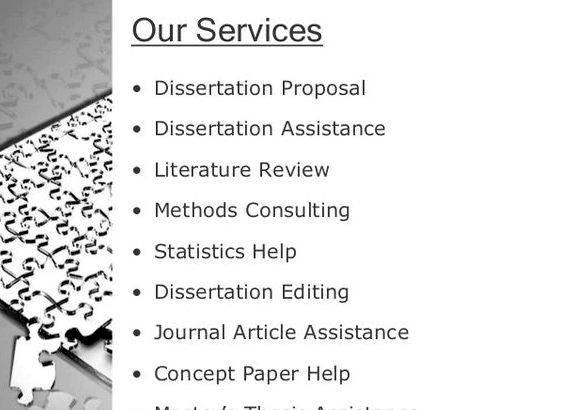
However, it is important to realize that this is not the point of a thesis proposal. Instead, in the course of writing a good thesis proposal, it is natural to express evidence of these things.
Since your thesis is a proposition, and since the purpose of your graduate work is to verify the truth of that proposition, the next most important thing your thesis proposal should contain is a description of how to know if this particular proposition is true.
For example, if your thesis were “P is equal to NP”, then you would explain what constitutes a proof of this statement. In this case, you might say that a polynomial-time solution to a NP-complete problem would constitute proof.
In this part of your proposal, it is often useful to discuss how to verify the negation of your thesis, because it provides a useful rhetorical contrast.
In this part of your proposal, you continue to establish your understanding of the area and your expertise. For example, it is often useful to discuss how similar theses have been verified.
This part of the proposal is the most contractual part, because it lays out an evaluation framework for the work that you ultimately turn in.
It is often the best and most clear place to define your non-scientific standards. For example, if your thesis is “frobnozzle analysis is feasible and useful for nobfrozzled languages”, then the terms “feasible” and “useful” are probably squishy and could be interpreted differently by different people. In this part, you would clarify that “feasible” for you means that the average zombified freshman can do it and that “useful” means that it saves on average ten zorkmids given a set of benchmarks you layout in the proposal. (This is not to say that you should not give some explanation of these ideas before, just that that you should solidify expectations in this piece.)
There are many coherent and clear theses that have verification procedures that are not worthy of graduate work. One large class is the set of theses where the truth of them is already known or easily knowable. Therefore, after explaining how to know if your thesis is true, you should explain that the answer is not known. From a proof-theoretic perspective, you first explain what proof system will verify the claim and then you argue that no proof is extant.
It is common to use sections like this to discuss why existing solutions to similar problems do not apply to the study of your thesis.
This part is the final nail in the argument that you are a burgeoning expert in the research area of the thesis, because you demonstrate your breadth of understanding that the thesis is currently unknown and what similar problems have been solved.
Something that many proposal review committees claim to care about is “does anyone care about your work?” In my opinion, the thing of value that this question is getting at is “is this really an unknown thesis?” In my opinion, the answers to scientific questions and the increase in humanity’s knowledge of truth is enough to care about anything. I don’t like to directly answer the “who cares” question, because I think it can blind us to fundamental research and it encourages us to follow fads and human tastes.
Although it is not strictly necessary for a thesis proposal to contain any argument that you are capable of answering the truth of the thesis in a reasonable time, it can be useful for you and some proposal review committees require it. It can be useful to you, so you don’t bite off more than you can chew. But, because it is not strictly necessary, in my opinion, you should limit your plan to a sketch and you should try to integrate it as much as possible into your discussion of how to verify the thesis&- essentially, you describe a sketch of what method you will use to verify it.
I think the practice of requiring elaborate or detailed plans is destructive to science, because it encourages late proposals where a lot of the work is complete, the thesis is a post-hoc construction, and the verification is designed after what is expedient rather than what is in principle good.
Do not be blinded by inane suggested thesis proposal outlines and requirements. Understand what the actual purpose of a thesis proposal is and do that.
Finally, this discussion merely explains what a thesis is and how to propose one for graduate study. Whether the thesis you have in mind is&- (a) good science, (b) significant science, or (c) computer science research&- are totally different questions with their own answers. Different committees and reviewers are likely to have very different standards on these questions and could approve or fail your proposal for failing to satisfy those points, despite your proposal being well-formed.
Acknowledgments: I see this whole post as a restatement and backwards-reasoning from Olin Shivers’ excellent advice about dissertations .
Please enable JavaScript to view the comments powered by Disqus.


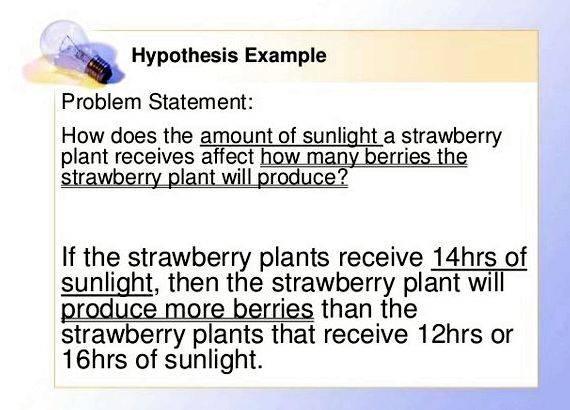


 Harvard reference phd thesis writing
Harvard reference phd thesis writing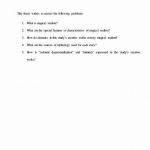 Myth of a latin woman thesis proposal
Myth of a latin woman thesis proposal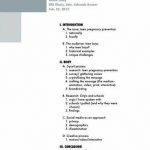 Tentative outline for thesis writing
Tentative outline for thesis writing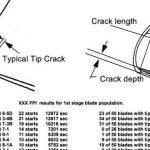 Single crystal superalloy thesis proposal
Single crystal superalloy thesis proposal On going home joan didion thesis proposal
On going home joan didion thesis proposal






